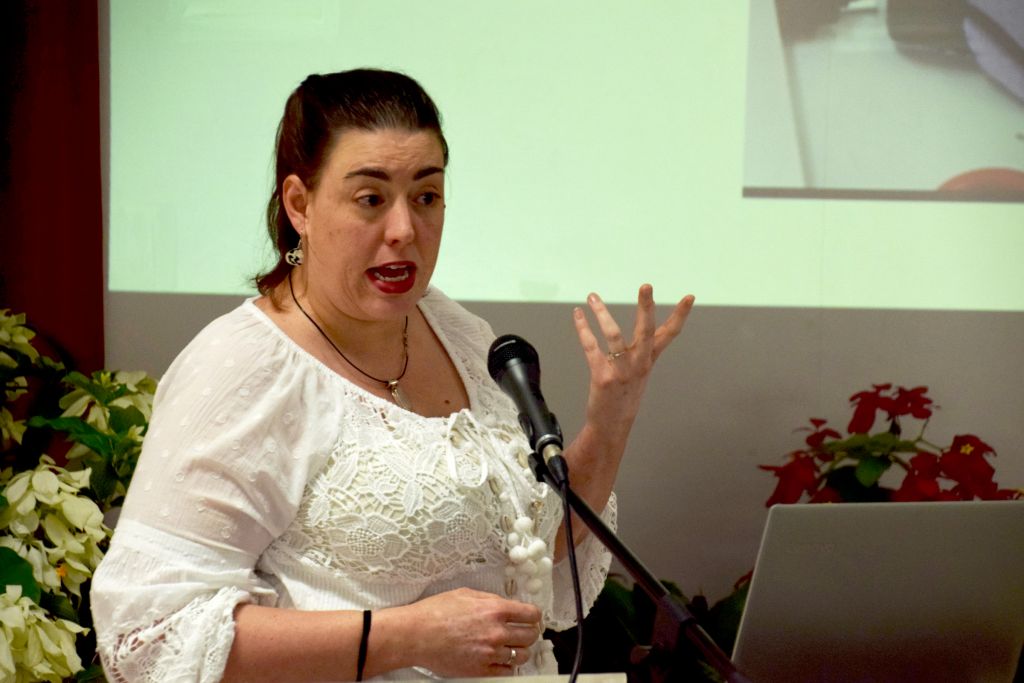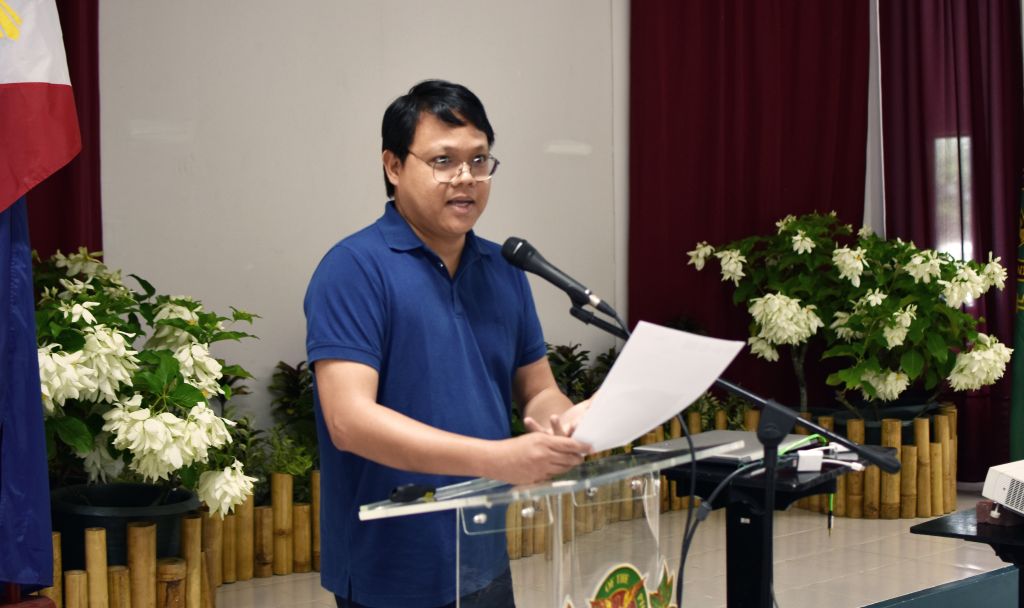The University of the Philippines Open University Faculty of Management and Development Studies (UPOU-FMDS) held a Let’s Talk It Over (LTIO) forum titled Crafting Futures in the Digital World: Women’s Journeys into the Workplace on 30 May 2019 at the UPOU Oblation Hall in Los Banos, Laguna and live streamed over UPOU Networks.
In attendance were members and representatives from UPOU, Philippine Normal University, Adamson University(AdU), University of Glasgow, Centre for Research & Development in Adult and Lifelong Learning (CR&DALL) in Glasgow, University of Kurdistan, Global Challenges Research Fund in United Kingdom, UNESCO Regional Bureau for Science in the Arabic States, S&L Global Company Inc., and the University College London.
Dr. Primo G. Garcia, Dean of FMDS,in his welcome remarks, reminded the audience of the importance of empowering women by giving them access to education, Information and Communication Technology (ICT), and digital libraries. He also promoted UPOU’s Diploma in Women and Development program and ended his welcome remarks saying “Futures are crafted tomorrow, not today.”
Dr. Lavinia Hirsu, a Lecturer in Applied Linguistics, Composition and English as a Foreign Language (Culture, Literacies, Inclusion & Pedagogy) from the University of Glasgow introduced their network called Workers by Self-Design:Digital Literacies and women’s changing roles in unstable environments a series of networks that brings together people from different walks of life to discuss and concoct ideas regarding women empowerment. Dr. Hirsu talked about two points — one is about not waiting for the infrastructure to be built since there has already been a lot of creativity in placed and that women are already doing their best with available resources; and the second point is to look for new opportunities to strengthen and build the next level which could strengthen women’s rights and opportunities. The network aims to answer the problem of a marketplace that empowers and gives women their own identities while providing an environment wherein these women could learn and share their experiences with each other.
Dr. Ghait Fariz, the Director of the UNESCO Regional Bureau for Science in the Arabic States- Cairo, discussed about the alarming rate of illiteracy in Egypt in which most are women and how the use of ICT could change the current situation. He shared their project that provided ICT lessons and crash courses which helped improving women’s access to technology. Based on the result of the first phase of the project, they managed to get a 92% success rate for the Adult Education Authority Exam which is far above the national average. Aside from the technological education, women are also taught about their rights, special needs education, and are helped in gaining back their self confidence.
The next resource persons were Lamiah Hashemi, Seyed Mohammad Taher Hosseini, and Farzad Eskandari from the University of Kurdistan. Ms. Hashemi discussed about the disparity of education among genders in the Kurdistan province and how females from both the urban and rural sectors have lower literacy rates than men even at the university level in the provinces. The same could be said about the employment of women wherein the disparity between the sexes are abysmal even for the degree holders; the major employers of women are in the service industry, and agricultural centers which are owned by families. However by promoting entrepreneurship and digital literacy in the affected areas, there could be improvements in their lives such as access to health services and education, as well as making a living that is beyond than just living from on a day-to-day basis.
The third speaker was Ms. Leah G. Gatchalian of the S&L Company. Inc. Ms. Gatchalian talked about her roots of being an entrepreneur and how she worked in different industries such as international trade and marketing, and the trade of import and export until she decided to start her own business. Ms. Gatchalian then discussed about the use of the different forms of technology that are incorporated in entrepreneurship such as blockchain, SCiO, and RFID(Radio Frequency Identification)-enabled vending machines. Ms. Gatchalian then explained that these technologies will not eliminate jobs but instead increase employee activity and help them do higher-level jobs while minimizing human error and waste.

The fourth resource person was Dr. Jennifer Rode from the knowledge lab of the University College London. Dr. Rode’s talk focused on computational thinking and micro computers rather than digital literacy. The topic of computational thinking is still a problem due to the traditional way of teaching in which according to Dr. Rode “is highly analytical, focused on solving math problems, and manipulating texts and is often boring.” Dr. Rode also noted that it fails to engage a diverse group of learners and non-linear thinkers, and yet using computational-making method(s) solves the problem that the traditional teaching has failed to address, and the usage of E-textiles transcended the gender roles by proving that it is not only for girls. Rather, boys are also engaged in this learning process.
The last speaker was Dr. Merlinda Palencia, a professor of Chemical Engineering in the Adamson University, who talked about technopreneurship and sustainable and Eco-friendly wastewater management. Dr. Palencia’s research, in partnership with the Department of Science and Technology (DOST), Research Consortium of Universities in Manila, Philippines, Pasig River Rehabilitation Commission, and the Local Government of Manila, produced eco-septic technologies, and VIGORMIN which is an organic product for the treatment of wastewater, and an odor neutralizer that is affordable to households and small-medium scale industries. The research was a faculty-led university research project that received a technology validation and was funded by DOST and was later turned into an in situ application. The project stemmed from the need to clean the Esteros (waterways or drainage canals) around the university area where Dr. Palencia works; it soon grew into a larger project wherein the us of these water-treatment or eco-septic technologies were used in communities at Palo, Leyte. As parting piece of advice, Dr. Palencia reminded everyone that the research that we do should not just be limited to the academe or libraries, we should always do these to serve the community.

The closing remarks came from Assistant Professor Rameses de Jesus, the Director of Gender Concerns of UPOU. (Biel Remoquillo)







